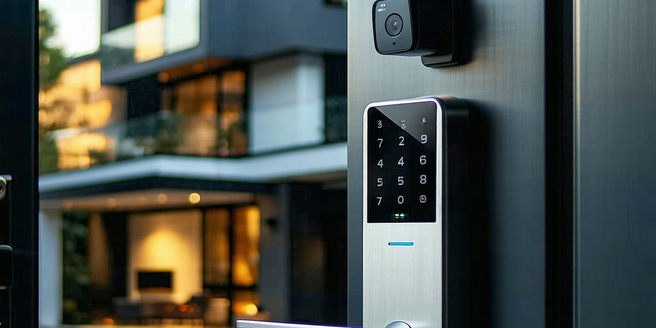Home Security Upgrades

Why Upgrade Your Home Security?
Upgrading your home security is essential in today’s world where threats to personal safety and property can arise unexpectedly. With advancements in technology and the increasing sophistication of burglars, relying on outdated security measures can leave you vulnerable. Modern systems offer features like smart locks, video surveillance, and motion detectors, which provide a robust barrier against intruders. Upgrading not only enhances protection but also offers peace of mind. Additionally, an advanced system can integrate with your smart home devices, offering convenience and remote monitoring. Ensuring your family’s safety means staying ahead of potential threats, and upgrading your security system is a proactive step in safeguarding your home.
Latest Home Security Technologies
In recent years, home security technologies have advanced remarkably, offering homeowners a range of high-tech options to protect their properties. From smart locks that allow access through smartphones to AI-driven security cameras capable of facial recognition, the possibilities are vast. These modern systems can connect to your smartphone or computer, providing real-time alerts and video feeds no matter where you are. Features like motion-sensing lights, glass break detectors, and smart doorbells with video and audio capabilities ensure comprehensive security coverage. With voice activation and seamless integration with virtual assistants like Alexa or Google Home, managing your security system is more accessible than ever. Investing in the latest technologies provides heightened security and convenience, making them an essential consideration for any security upgrade.
Choosing the Right Security System
Selecting the right security system for your home involves careful consideration of several factors. The choice depends on the size of your home, your budget, and your personal security needs. Start by assessing the vulnerabilities of your property and decide whether you prefer a wired or wireless system. Wired systems are usually more reliable and less prone to hacking, while wireless systems offer flexibility and are easier to install. Think about whether you prefer local or professional monitoring and ensure the system you choose is user-friendly and compatible with other smart devices you own. Prioritizing features such as 24/7 monitoring, remote control access, and automated alerts will ensure you have a comprehensive and effective security solution tailored to your specific requirements.
DIY vs. Professional Installation
When installing a home security system, homeowners are often torn between DIY and professional installation. DIY systems are typically more cost-effective and customizable, allowing homeowners to install and expand as needed. They are also ideal for renters or those who might move homes frequently. On the other hand, professional installations provide expert setup, ensuring devices work seamlessly together with optimal coverage. Technicians can offer insights and ensure no vulnerabilities remain. Additionally, professional systems often come with maintenance and service packages, offering peace of mind. Ultimately, the decision depends on one’s comfort with technology, budget, and the level of security expertise required. Both options have their merits, and evaluating these will help in making an informed choice.
Cost-Effective Security Solutions
Securing your home doesn’t have to break the bank. There are many cost-effective solutions that provide extensive protection without the high price tag of comprehensive systems. Simple yet effective measures like upgrading door locks to smart locks, installing window sensors, and using battery-operated security cameras can significantly boost security. Many companies offer affordable monthly plans for cloud storage and professional monitoring, allowing you to spread the cost over time while still benefiting from technological advancements. Some systems even allow à la carte service selection, enabling you to pay only for what you need. Investing in visible deterrents such as strategic lighting and security signs can also enhance security at a fraction of the cost.
Maintaining Your Security System
Once you’ve installed a home security system, maintaining it is crucial to ensure its effectiveness. Regular maintenance checks can prevent false alarms and system failures. Start by testing all components monthly, such as motion detectors, cameras, and alarms, to ensure they’re working correctly. Replace batteries regularly, and update firmware to keep software features up-to-date. Dust sensors and cameras regularly to avoid obstructions. Professional monitoring services often include routine check-ups and system health monitoring, which are invaluable for long-term reliability. Don’t forget to review your security settings and adapt them as necessary to new threats or personal changes, such as moving or remodeling. A well-maintained system is your best defense against unexpected intrusions.